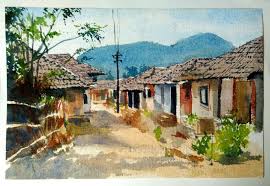|
One of the things I notice in my practice is how lonely parents feel in their parenting experiences with their teens. Somehow, even though most parents know adolescence is tough for many, there is still a sense of shame and inadequacy when it comes to sharing the challenges they are facing with their own teens. Maybe it stems from the values our society is organized around in general, and the parenting experience in particular: individualism and privacy, highly competitive and child-centered. We admire strength and success, condemn failure and often mistake vulnerability for weakness. These values combined create an atmosphere in which parents are competing, and their children are the product of their success. Parents have to create an individualized rearing path tailored to the individual needs of their children. If their children struggle and fail to succeed - by our society’s standards - the parents somehow failed and are therefore feeling inadequate. Not surprisingly, this isolation adds a significant amount of stress to parents’ experience, as they are not only having to deal with one of the toughest developmental stages their children will ever go through, they are also doing so in isolation, wasting valuable energy on ensuring, to the best of their ability, others don’t know of any difficulties or struggles. The reality is that there is no manual. Everyone is fumbling in the dark (accompanied by a confused parent, at best), feeling their way along the walls, running into objects, recognizing them only after they stubbed their toes, or noses into them. While it’s true that each family, each parent and each child have their own needs and their own special balancing act to invent and perfect, the mutuality lies in the mere fact we are all striving to meet those needs and to find and fine-tune this balancing act. In the multi-family group I facilitated, parents would report feeling an unimaginable sense of relief and surprise at how much they had in common with other parents, regardless of variables such as, race, culture, socioeconomics etc, and regardless of significant differences in the issues their teens were facing. It’s so much nicer when we don’t have to face it alone. As the old saying goes "It takes a village to raise a child", so where is our village? How does it look like? And what can we do to sustain it? The experience of the the village isn’t comprised of adults creating an informants’ network of eyes and ears to surveil their young people. The experience of the village is comprised, in its essence, by having adults, other than their own parents, young people can look up to, relate to, and reach out to. The difference between these two positions is cardinal. In the former, we are supporting an isolated, competitive experience of parenting teens, while in the latter - we understand this is a joint effort, and that we are all weaved into, and make up, the unique human fabric that is the environment in which we raise all of our children in. This is particularly true in adolescence, in contrast to early childhood, because adolescents - by definition and as part of their healthy developmental task - are moving away from their parents, and towards their peers, in an effort to figure out their identity. They are less likely to consult with, or listen to their parents - who they are now trying to differentiate themselves from the most. Parents, your teens are not living in a bubble - they are influencing and are being influenced by others: peers, social trends and idols and a few adults as well. While your teen may ignore, reject or resist your help and support, they may be more tolerant and open to hear from another adult. Coaches, teachers, relatives, spiritual leaders, neighbors, doctors, therapists, librarians, shopkeepers and other “aunts” and “uncles”, make the “marinade” that shapes your teen. If they can contribute to your child’s support - let them. And on the flip side of that - you may do the same for another’s teen. That’s what makes our village! Moreover, dear parents, we are all part of our village, so please remember you are not alone! Talk to your peers: reach out to other parents, who may or may not know your teen. Seek support for yourself: include people, professional and others, in your struggles and challenges, in your dilemmas and conflicts. More than any other variable - the existence of a strong community has been proven critical in human beings’ (of all ages), overall experience of happiness and fulfillment. By stepping away from shame and isolation, into community - allowing others to help guide your youth and stepping up to guide others’, as you seek support for yourself with those who have the tools to help, or with those who share our challenges - that is how we create and maintain our village.
0 Comments
|
AuthorMaya is a marriage and family therapist, working primarily with teens, families and adults, in the east bay, California. Archives
October 2018
Categories |






 RSS Feed
RSS Feed